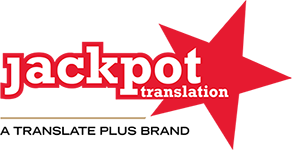
An introduction to content strategy and sports translation for online betting sites
Content strategy and sports translation is essential for any emerging online betting site, given the competition you face in a crowded industry. The big brand names like Bwin and William Hill can rely on more traditional advertising methods to maintain their reach but new players in the industry have to fight harder for attention.
The trouble with multilingual content marketing is many brands fail to adapt their strategy to each audience their targeting. Sports translation alone isn’t enough to connect with a global fanbase of sports bettors – so let’s take a closer look at how online sports betting sites need to approach content marketing.
Localising page content
The first thing you need to do from a content perspective is to localise the page content on your website to match regional audiences. Most users in the US are going to be more interested in NFL than football as we know it, for example, and people in Spain are more likely to bet on La Liga than the Premier League.
It’s not only regional national sports you need to think about either. You’ll also want to adapt your page content to fit in with major competitions that are most relevant to each region. There’s no point leading with the Champions League once the season’s over or NBA after the final’s been won.
Start with localising your pages first and then get some specialist sports translation to finalise your content.
Localising blog/news content
You might think betting sites don’t bother with blogging but the likes of Bwin and Bet365 both feature news sections on their sites. This is a key part of keeping their SEO ranking healthy and even more important for smaller sites that don’t have the same kind of reputation to rely on as the industry leaders.
Once again, you don’t want to jump right into sports translation and simply translate your blog content. Localise your content strategies to suit each market, starting with the keywords and topics you’ll cover on each version of your blog. Next, you want to think about which localised third party sites to target for guest posts and link building.
The same thing goes for your internal linking efforts between pages and blog posts. Approach each version of your site as a separate entity and be strategic about how you plan to build your content marketing campaigns.
Email marketing
The same thing applies with your email marketing strategy. Localise your strategies first, then create the content and think about sports translation once everything is in place. You’ll also want to treat each market individually when it comes to signup strategies and audience segmentation.
It might take a different message to get people signed up in parts of South America than users in the US, for example. Make no assumptions, test your approaches and localise everything to regional interests.
Incentivisation
Just as it will take different messages to get some audiences signed up to your email lists than others, you’ll also find it takes different incentives to get people opening accounts, entering competitions and even placing bets. Tickets to that next fight in Vegas might be the ideal competition prize in some parts while tickets to the Rugby World Cup final could be more effective in the Six Nations countries, for example.
Social media choices
Don’t assume people all over the world use Facebook and Twitter as their go-to social networks. This simply isn’t the case. Especially in Asia, you’ll find local networks like WeChat in China and KakaoStory in South Korea reign supreme. Misfiring on your choice of social media platforms could leave you missing out on vital engagement and exposure.
You should also be aware of the most popular search engines in each of your target countries. Google is the top search engine in almost every country but it won’t help you in Russia, China or South Korea, for example. It’s not only the top search engine you should think about – the second and third most popular options, where there’s more variation.
Sports translation is a vital part of your multilingual content strategy as an online betting brand, but it’s not enough to engage with a worldwide audience. Each market you’re targeting needs a localised content strategy of its own, designed to capture the interests of sports fans and online bettors in the region.
Always remember that it’s the gambling experience that sets online betting brands apart from each other and your content drives this. So provide the best experience you can to suit the unique needs of each market you’re targeting.
- Posted by Alexandra Kravariti
- On 22nd November 2017
- 0 Comments



0 Comments